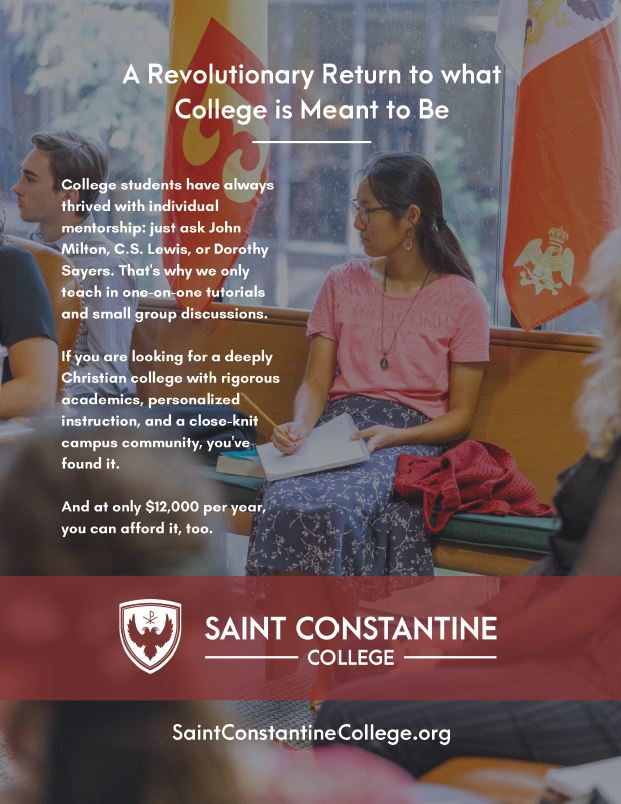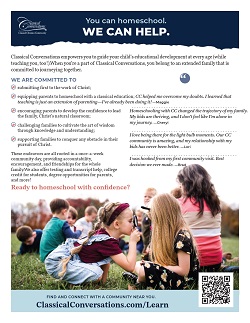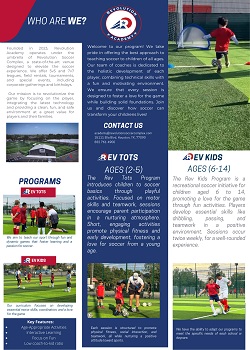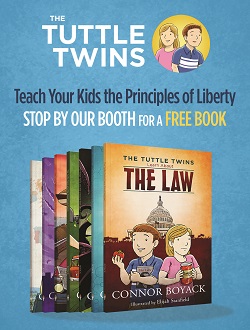Greater Houston Area Home Educators
Cordially invites all interested homeschoolers
In the SE TX region
In grades 1st-8th to participate in the annual
Greater Houston Area Homeschool
National Geographic Geography Bees
They are hosting on Friday, January 22, 2016
At Fairfield Baptist Church, 27240 Hwy. 290, Cypress, TX
Times and registration information will soon follow!
Greater Houston Area Homeschool National Geographic Geography Bees
ANSWERS to your QUESTIONS about the GEO BEE
WHO CAN PARTICIPATE IN THE Texas Home Educators SPONSORED GEO BEES?
Just for Fun Geo Bee: 1st-3rd grade homeschoolers (age equivalent; approximately 7-9 yrs. & those 6 1/2 who are in 1st grade)
***Participants MUST be able to read AND write independently as part of the bee requires it.
National Geographic Geo Bee: 4th-8th grade homeschoolers
-age equivalent who has NOT reached their 15th birthday on or before Sept. 1, 2015
***Same reading/writing independently rule applies.
“Homeschooled” is defined as having the student’s classes taught by the parent or under their direction. As this is a Geography Bee, a student may NOT attend a public or private school or a college for their geography, culture, social studies, or history course work.
This particular set of Geo Bees is for students living as full time residents of the South East Texas region only.
DOES MY CHILD HAVE TO QUALIFY AT A SUPPORT GROUP GEO BEE FIRST?
NO. National Geographic does not recognize bees outside of their system. Homeschoolers are required by National Geographic to meet minimum participation numbers, & we invite homeschoolers who are interested to attend this one. A child may participate in only ONE Geo Bee in a given school year. For this year, that would mean that a student can only participate in ONE bee between September 2015 to February 2016. Any student who participates in another Geo Bee prior to this one will be disqualified.
WILL MY CHILD RECEIVE RECOGNITION?
YES. All participants receive a certificate. Winners up to 3rd place receive a trophy or medal.
IS THE GEO BEE A SINGLE ELIMINATION STYLE TOURNAMENT?
(IS MY CHILD “OUT” AS SOON AS HE MISSES ONE QUESTION?)
NO. In the course of the Geo Bee, there are a series of rounds. During the first few rounds, points are tallied, so questions can be missed without immediate elimination. Simply stated, elimination is based on missing what is usually more than 1 question as well as the other regulations for moving on to the next level of rounds.
ARE THE ROUNDS ON CERTAIN TOPICS?
Each round has a topic. For example, topics may relate to U.S. geography, world geography, continents, states, countries, landmarks, capitals, bodies of water, or other topics like fun facts, wild & weird facts, etc.
WHERE DO THE QUESTIONS COME FROM & WHO MAKES UP THE RULES?
The questions are written by National Geographic in Washington DC & are sent to a designated local official under seal who is not related to any contestants. National Geographic also sets forth the rules we must follow.
WE DON’T KNOW EVERYTHING THERE IS TO KNOW ABOUT GEOGRAPHY, SHOULD WE STILL PARTICIPATE?
YES. There are many benefits for students to participate in bees. Here’s 4 reasons to name just a few: Bees provide a healthy environment in which to compete. It is motivating for students & parents to have a goal for learning. Even a not-so-victorious experience one year can improve future participation teaching our children that it isn’t always about winning but about overcoming & improving–an important life lesson. Participation helps students learn how to figure out an answer even if the answer is not initially known thus practicing higher level thinking skills-the ultimate goal of any educator.
HOW ARE THE QUESTIONS ASKED?
Some questions include answers from which to choose (example: Where would a hurricane more likely occur: Colorado or Louisiana?).
Other questions simply ask for an answer (example: What state in the southeast US is made up of a large peninsula? What is the capital of France?).
All questions are given orally. Some questions are ANSWERED ORALLY while others are WRITTEN by participants. If we experience a large number of registrants, a larger number of the preliminary rounds will be in a written format determined & prepared by the Administrator. The other questions will be asked in traditional bee format orally on stage. The written format scores & the oral scores will be tallied together to determine which participants continue in the competition. In the rare occurrence that we meet our maximum number of contestants, the entire preliminary round will be in written format. Some questions are asked to an individual participant with the next participant receiving a completely different question. Written answers are usually for questions that are given to all participants simultaneously.
DO I NEED TO REGISTER MY CHILD?
YES. In order for us to be adequately prepared, registration is required. Registration opens in late November/early December. Information will be available on the THE website under Geography Bee & also announced by various individuals who post or re-post to their group e-newsletters. Registration is confirmed in early January.
WHAT IF I SIGN UP BUT THEN CANNOT MAKE IT?
We hope you will make every effort to be at the bee. Remember that the success of the bee is dependent on participation…NOT registration. However, we realize things come up…illness, family emergencies, etc. Please contact the registrar as soon as possible should you need to cancel. It is common courtesy to let us know if you are unable to attend. Just as you would notify members of a team before a big game or the hostess of a party, please contact us @ sarah.geobee@gmail.com . Much time & effort as well as expense go into making the bees a rewarding experience for your family & participants. If we don’t have to print a certificate for someone who does not plan to show, it helps us keep costs down. Please be courteous & do NOT bring sick children to the bee.
WHEN & WHERE WILL THE BEES BE HELD?
The place & exact times will be announced when registration opens in the fall. National Geographic’s has recently changed their Geo Bee timeline. The Geography Bees will be held on January 22, 2016. Both bees are held the same day & follow each other making it convenient for families who have students in both bees. Check for details each year as this may change depending on volunteers & host availability. The National Geographic Bee (4-8th) will be held first followed by the Just for Fun Bee (1st-3rd). A different arrival time will be given for those in the younger students’ Just for Fun bee. Bees are usually held at a church who hosts the event.
CAN I (OR ANYONE) RECORD THE BEE?
NO, National Geographic does NOT allow any form of recording the bee by anyone–including parents or the media. It cannot be recorded with any type of device nor by personal note taking. Bring your camera for still pictures at the end of each bee.
HOW & WHEN DO WE PREPARE?
HOW: Learn geography! Dive into cultures & countries, states & straits, landforms & landmarks! A list of topics/examples & tools of the trade follow below. Students can go to www.nationalgeographic.com for on-line games & daily quizzes. Parents can also find free blackline masters of outline maps to download. Chose a curriculum or do a self guided study. Use games & other sources & materials to compliment your studies. There’s no wrong way to approach this.
WHEN: Start NOW making treks across the world! Go on a virtual vacation, use literature or history interests as jumping off points, or check into geography curriculum & materials at your local bookstore.
DO YOU NEED VOLUNTEERS?
YES. Volunteers are a critical part of making the Geo Bees successful. The bees simply cannot happen without them! Some positions must be filled by someone not related to any contestants; other positions are perfect for a parent/guardian. Contact the registrar at sarah.geobee@gmail.com for more information; subject line Geo Bee Volunteer.
GEOGRAPHY IS SUCH A BROAD SUBJECT. WHERE DO WE BEGIN?
There are many ways to start studying geography. Here’s one approach: Start big & get smaller. Learn the 7 continents & some general things about them. Locate the major oceans, primary rivers & dominant mountain ranges, deserts, or other features across the earth. Then get more specific with country studies learning about places as well as the culture & weather. Explore our own nation by regions, then states. Learn capitals & landmarks of states & countries, then get more detailed with other cities & features. Study the extremes of the world…the highest, the hottest, the coldest, & more. Think regionally, then get more specific as you progress in your studies. Again, this is just one suggested approach. For more ideas, see below. Curriculum reviews, supplemental materials, & more are in the archived articles of the Teaching Pioneer.
IF MY CHILD WINS, WHAT DO WE DO NEXT?
Just for Fun Bee: For 1st-3rd graders, this is the only Geo Bee. The SE TX Home School Assoc. started this bee many years ago to include & inspire the younger students to learn geography. Participation in the Just for Fun Bee can enhance performance of students when they go on to the National Geographic Bee as they get accustomed to how questions are asked & the types of information asked.
National Geographic Geo Bee: For 4th-8th graders, the 1st place winner of the THE sponsored bee takes an online test in late January/ early February to qualify for the state level competition. The deadline will be communicated to the winner & arrangements will need to be made between the parent & administrator. If the student qualifies, they will participate at the state level in late March or early April (notification has been in mid March in the past which comes directly from NG in Washington D.C.). If they win at state, they compete in Washington D.C. at the national level in May. A scholarship & a special trip have been awarded to winners at the national level. Second & third place winners also receive scholarships.
TESTIMONIES from our past bees:
“[The] Geography Bees were a joy to be a part of. I greatly appreciated the effort that went into the preparation and administration of the event and look forward to seeing this standard of excellence carried on in future years. Thank you for organizing two very thorough and professionally-run geography bees. All of the student participants and their families were winners thanks to the incredibly well-organized event. A win for geography – and a win for all of the students and families it represents!” L.S.
“We really enjoyed the experience and thought it was a great way to introduce healthy competition with the kids on an academic level. We are particularly pleased that all the kids got recognized for participation, but there were additional incentives based on merit to reward those who did well.” K.D.
“A well rounded knowledge of geography is such an important foundation to the study of history, culture, and literature. Having the Geo Bee to look forward to –and getting the girls excited about it— helped motivate me to not let this important subject get lost in the shuffle. The process of preparing for [the bee] seems to have sparked an interest that will continue. I’m so pleased with how much both my girls have learned so far and so glad we heard about the bee to give us that spark of motivation! It is a great, positive learning experience!” B.C.
“Great job by the volunteers & great seeing many of the families return from last year to compete again.” R.D.
GEO BEE: STUDY SUGGESTIONS
Geography encompasses many things- not just mere map location. But just like you don’t wait until you have mastered calculus to quiz yourself on multiplication tables, don’t think you have to be an expert in geography before you participate in the Geo Bee. Get started on your quest to learn more about the world and the people in it. Remember it is not always what you know but rather how you use what you know to figure out something you don’t know. While the list below is NOT an exhaustive one, (that would be pretty close to impossible), it should give you some ideas of topics to dig into & the tools of the trade with which to do it. Don’t get bogged down trying to learn it all or trying to buy all the possible resources. These lists are provided as study suggestions in an effort to dispel the confusion about what to learn & where to start. Check out the National Geographic website for more ideas. They have apps & online quizzes & also sell some fact books & other resources though these are not required. So get ready, set, & GO GEO!
Geographic Terms: equator, latitude, longitude, hemispheres, parallels, & poles, etc.
Types of Maps: physical, political, & others showing various information such as vegetation, products, etc.
Landforms & Other Geographic Features: volcanoes, mountains, rivers, deltas, peninsulas, isthmus, strait, channel, deserts, etc.
Extremes: highest, lowest, largest, longest, hottest, coldest, & other extremes of places
Physical Features: oceans, other waterways, mountain ranges, other landforms, climate, vegetation, etc.
Cultural Features: population, languages, religions, landmarks (can also be a physical feature), capitals, history/current events, etc.
Economic Features: transportation, products, industries, etc.
Mapping Skills: be able to read a map & answer questions about what it shows
TOOLS OF THE TRADE:
-world map
-globe
-atlas
-almanac
-blank outline maps (free to download on sites like www.nationalgeographic.com or www.geography.about.com)
-geography textbooks, workbooks, & programs
-geography games like Name That Country, Reading Roadway, Great States, bingo-type games, etc.
-geography toys like talking globes or interactive maps, puzzles, etc.
-geography software & cds
-travel or geography magazines
-state & country flashcards & fact cards











